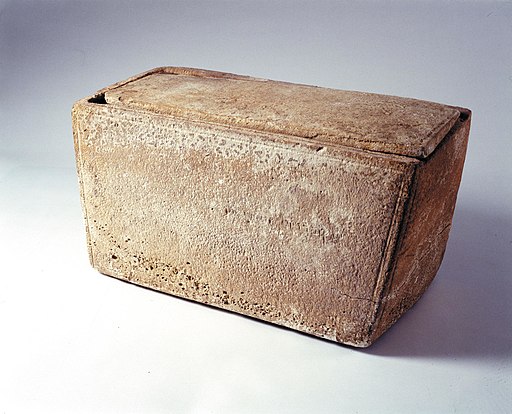Mr. Kenneth Frank: Jesus and the Old Testament
Author: David Markopoulos | Living Education
These summaries are written to give our audience an idea of the special forum messages our students have access to as part of the Living Education-Charlotte program.
Mr. Kenneth Frank, a longtime minister and faculty member for both Living University and Living Education, presented a forum message to this year’s students. In his message, Mr. Frank illustrated important elements of Jesus’ message that helped confirm the authority of the Old Testament.
A Theme of Mercy
Jesus did not come to destroy the law, but to magnify it. Matthew 22:36-38 records the first and great commandment, which is to love the Lord with all our hearts. The second great commandment, like it, is to love our neighbor as ourselves. These themes are consistent across the Old and New Testaments, and it was something Jesus emphasized in order to contextualize the Old Covenant rather than replace it. His mission was not to undermine the Old Testament, but to fulfill it.
Rather than a picture of a harsh, lawgiving God of whom we can only gain understanding through the Old Testament, we get the full picture contextualized by Jesus Christ’s message. The story of David taking bread when he had need for his men is not an example of a rigid breaking of the law, but an allowance for a need—the same mercy we see exemplified in Christ. Hosea 6:6 states: “For I desire mercy and not sacrifice, and the knowledge of God more than burnt offerings.” We clearly see this principle reflected and magnified in Jesus Christ, whose mind and character are consistent and reinforced across the entire Bible.
Examples of History
Jesus Christ was also the One who directly inspired those Scriptures to be written, so they should not be discounted so quickly. There are several key instances of Jesus Christ confirming the validity of the Old Testament—and if Christ treated those stories as Scripture, we should too.
In Matthew 12:40, for instance, Jesus staked His entire ministry on the story of Jonah: “For as Jonah was three days and three nights in the belly of the great fish, so will the Son of Man be three days and three nights in the heart of the earth.” While the notion of Jonah surviving three days and nights in a fish’s belly seems laughable to skeptics, Jesus clearly believed that it happened, and staked His entire credibility on it.
Jesus also referenced prophecies as if they carried weight and were applicable directly to Him. In Matthew 26:31, He quoted the prophecy given in Zechariah 13:7: “I will strike the Shepherd, and the sheep of the flock will be scattered” —pointing to His own death and the subsequent scattering of His disciples. In so doing, Jesus was confirming that this prophecy was directly applicable to Him.
The Lord and His Lord
One important Scripture that shows a link between the Old and New Testaments is Psalm 110. In it, David writes that “The LORD said to my Lord, ‘Sit at My right hand, till I make Your enemies Your footstool.’” This passage reflects a conversation between the Father and the Son, and Jesus quoted it in Matthew 22:43-45, asking rhetorically: “If David then calls Him ‘Lord,’ how is He his Son?” It is clear that the Individual in question is not David’s Son, but God’s, and this distinction—and its later reference by Christ—is a critical point.
Every Word is Holy
Matthew 4:4 states that “Man shall not live by bread alone, but by every word that proceeds from the mouth of God.” Jesus Christ believed in and vocally backed the authenticity of the Old Testament, and while skeptics may throw out the Old in favor of the New, or vice versa, it is undeniable that these two accounts confirm and complement each other in an important way. We should be thankful to God for inspiring these words and for using His servants for His purposes. The authenticity and divine inspiration of the Bible is something none of us can take for granted.


David Markopoulos is a Living Education alumnus from the 2023-2025 school years. Originally hailing from Chicago, he currently works for the Living Education program.









